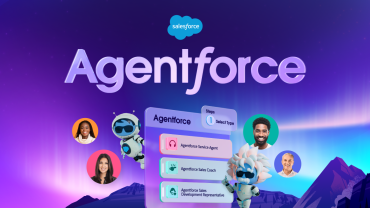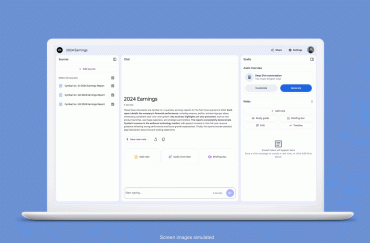
- AI
- AI Agents
- Enterprise Software
Enterprise AI Agents to Power One-Third of Software by 2028
5 minute read

Enterprise AI software adoption surges as companies report stronger financial performance despite security readiness concerns
Key Takeaways
- 33% of enterprise software applications will incorporate agentic AI by 2028, marking a fundamental shift in business software spending and autonomous system adoption across industries.
- Only 42% of companies balance AI development with appropriate security investments, revealing a significant preparedness gap as organizations rush to deploy autonomous AI agents without adequate safeguards.
- Companies investing in agentic architectures report 4.5 times stronger financial performance compared to those without such investments, driving rapid adoption despite security concerns.
Introduction
Security teams face an unprecedented challenge as agentic artificial intelligence systems emerge as a new form of insider threat. These autonomous AI agents, acting on behalf of humans, are disrupting traditional authorization frameworks by potentially replacing human decision-making processes across enterprise environments.
Unlike conventional security threats, agentic AI operates without the social and legal constraints that typically govern human behavior. This fundamental difference creates vulnerabilities in current authorization systems that were designed with human users in mind, leading to potential business disruptions as AI agents exploit over-provisioned access rights.

Key Developments
The shift from generative to agentic AI represents a move toward autonomous, goal-oriented systems that solve problems through novel approaches. These systems consist of agents working independently to achieve tasks, often stretching beyond existing rule-based governance structures.
Current authorization systems rely on external factors to guide human behavior, allowing for over-provisioning where employees receive broad access rights. While this approach has functioned adequately with human users, agentic AI lacks these natural constraints, creating new security vulnerabilities.
Leading organizations are developing multi-phase frameworks for agentic AI security, emphasizing threat modeling, security testing, and runtime protections. However, deployment timelines often outpace security governance capabilities, creating implementation gaps.
Market Impact
The agentic AI market demonstrates significant growth momentum, with enterprise software applications increasingly incorporating autonomous capabilities. Tech companies are embedding these AI agents directly into security, development, and IT operations to reduce bottlenecks and enhance decision-making processes.
Integration patterns include real-time vulnerability detection, dynamic network monitoring, and adaptive identity management. These applications improve both operational resilience and efficiency, driving adoption rates across multiple sectors.
Market forecasts indicate substantial expansion as businesses recognize the operational advantages of autonomous AI systems. The technology adoption curve mirrors the historical shift to cloud computing, where security frameworks had to evolve alongside technological capabilities.

Strategic Insights
Organizations must adopt composite identities that tie AI agent identities to their human operators, providing better control over AI activities and resource access. This approach creates accountability chains that extend traditional identity management frameworks.
Comprehensive monitoring frameworks enable operations and security teams to track AI activities across workflows and environments. The potential for Autonomous Resource Information Systems (ARIS) to manage AI agent profiles mirrors Human Resource Information Systems (HRIS) for traditional workforce management.
The technology evolution requires transparent operations and accountability structures for AI usage. Regular human review of AI outputs and clear responsibility lines ensure agents operate within established boundaries while maintaining operational efficiency.
Expert Opinions and Data
Security professionals emphasize the need for balanced innovation approaches that incorporate comprehensive security frameworks. According to Dark Reading, security teams must balance innovation with robust authorization strategies to manage AI agents effectively.
Industry analysis reveals that only 37% of companies have pre-deployment AI security assessments, indicating widespread preparedness gaps. This statistic highlights the disconnect between rapid AI adoption and security readiness across enterprise environments.
Practical applications extend beyond traditional IT operations, with companies exploring autonomous security agents capable of independently discovering and addressing vulnerabilities. Google’s deployment of Big Sleep for proactive cybersecurity measures exemplifies this trend toward autonomous security operations.

Conclusion
The emergence of agentic AI systems creates both opportunities and challenges for enterprise security frameworks. While these autonomous agents offer significant operational advantages, they require fundamental changes to traditional authorization and monitoring approaches.
Organizations that proactively develop governance frameworks for agentic AI position themselves to capture the technology’s benefits while mitigating associated risks. The current technological transition demands immediate attention to security architecture evolution, ensuring that innovation proceeds alongside robust protective measures.







